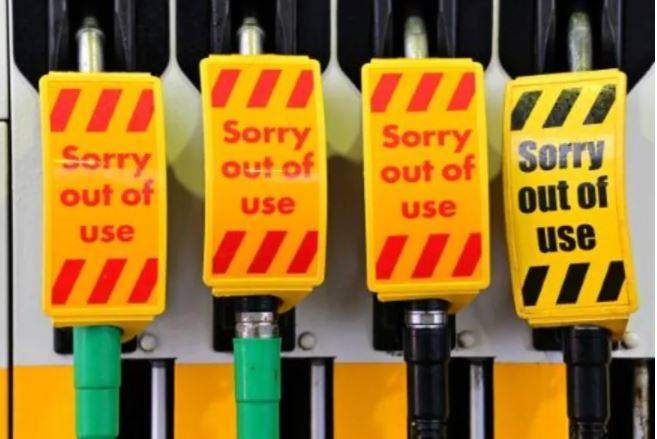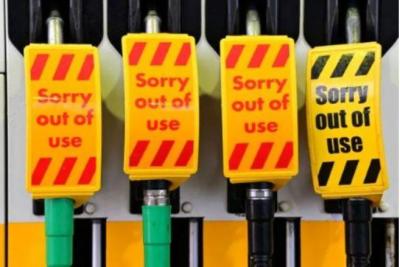The British government announced on Wednesday that it plans to deploy military personnel within days to help address the fuel supply shortage, as the retail and hospitality sectors called for allowing the use of foreign workers to fill vacancies that arose post-Brexit. The crisis that the UK has faced for a week has led to panic buying of fuel and resulted in scuffles, with observers considering the situation to be a consequence of Brexit, the COVID-19 pandemic, and a lack of foresight to replace thousands of foreign drivers who left the country.
British Business Minister Kwasi Kwarteng told Sky News that soldiers could start transporting gasoline supplies to distribution stations "within two days" to address the queues forming at petrol stations. The minister tweeted that the government's fleet of tanker trucks "would be on the roads this afternoon (Wednesday) to improve gasoline delivery operations at stations across the UK." He added that these trucks would be driven by civilians.
A total of 150 military drivers have been put on "standby," and another 150 will be utilized "in the coming days," according to a source from the British Press Association. Reports indicate that officials from the business and defense ministries are coordinating with the authority overseeing the fuel sector to determine the best destinations for sending supplies.
On Tuesday, Prime Minister Boris Johnson sought to reassure the public that there is sufficient stock, claiming that conditions are beginning to return to normal. The shortage of tanker drivers last week raised fears of fuel shortages at gas stations, which led to a rush for fuel and prompted some to stockpile gasoline. The anxiety among consumers resulted in threats and confrontations, as healthcare workers and public sector employees called for priority access to ensure they could reach their workplaces.
The government had pushed for an end to free movement within Europe during Brexit, committing to "take back control" of what it deemed uncontrolled immigration. However, last week it relaxed visa regulations in an attempt to address employment difficulties and attract more foreign truck drivers. In some stores, shelves have been empty for weeks as fears grow about the impact on the Christmas period.
### Seasonal Worker Shortages
Gordon Palmer, the executive director of the Petrol Retailers Association, noted that only 27% of association members still report supply disruptions, down from 37% on Tuesday. The association represents independent retail stations, which account for 65% of the total number of 8,380 stations in Britain. After reports indicated that additional supplies were reaching distribution stations, Palmer said, "We expect the relief to continue in the next twenty-four hours."
However, despite reassurances, concerns remain that returning to normal might take weeks. Steve McNamara, the secretary-general of the Licensed Taxi Drivers Association, reported that up to 30% of self-employed black cab drivers in London were unable to obtain gasoline on Tuesday. The restriction of free movement within the EU post-Brexit has led to staffing shortages in pubs, restaurants, and major stores, with the entertainment sector voicing similar concerns.
Kate Nicholls, CEO of UK Hospitality, stated that workers are still "stuck abroad due to travel restrictions" related to COVID-19. She told Sky News that the government needs to "ease immigration rules at this time to shorten the administrative process related to hiring." Next, a retail chain, has warned of a "shortage of seasonal workers" similar to the current lack of truck and tanker drivers. The management stated, "We hope the government will take a more robust approach" to address the "crisis in (warehouse, restaurant, hotel, and care home) workers and many seasonal sectors that loom ahead."
Johnson's government is facing increasing challenges, including a growing dispute with France over fishing rights, which has posed a significant obstacle during trade negotiations with Brussels.




